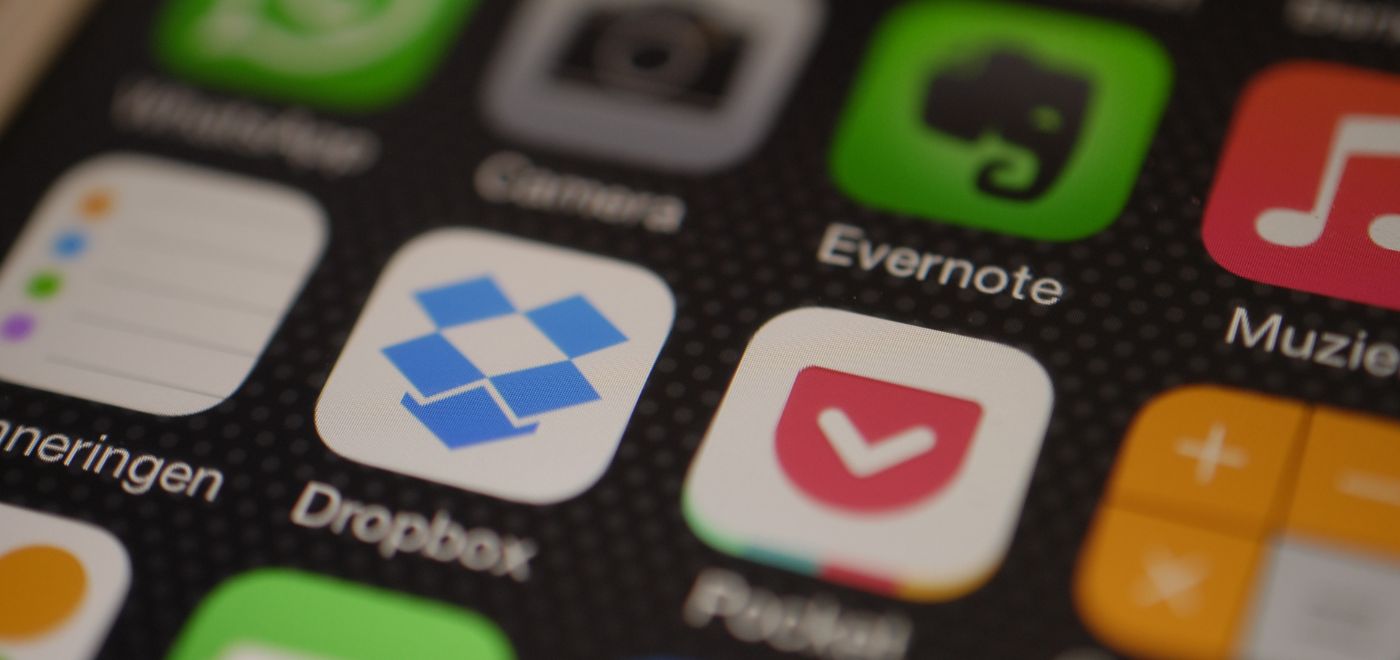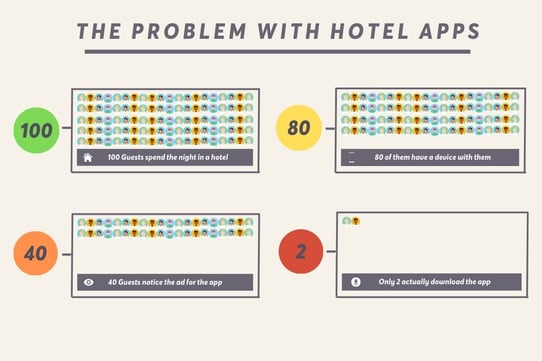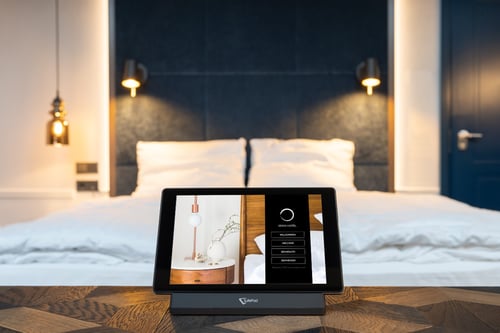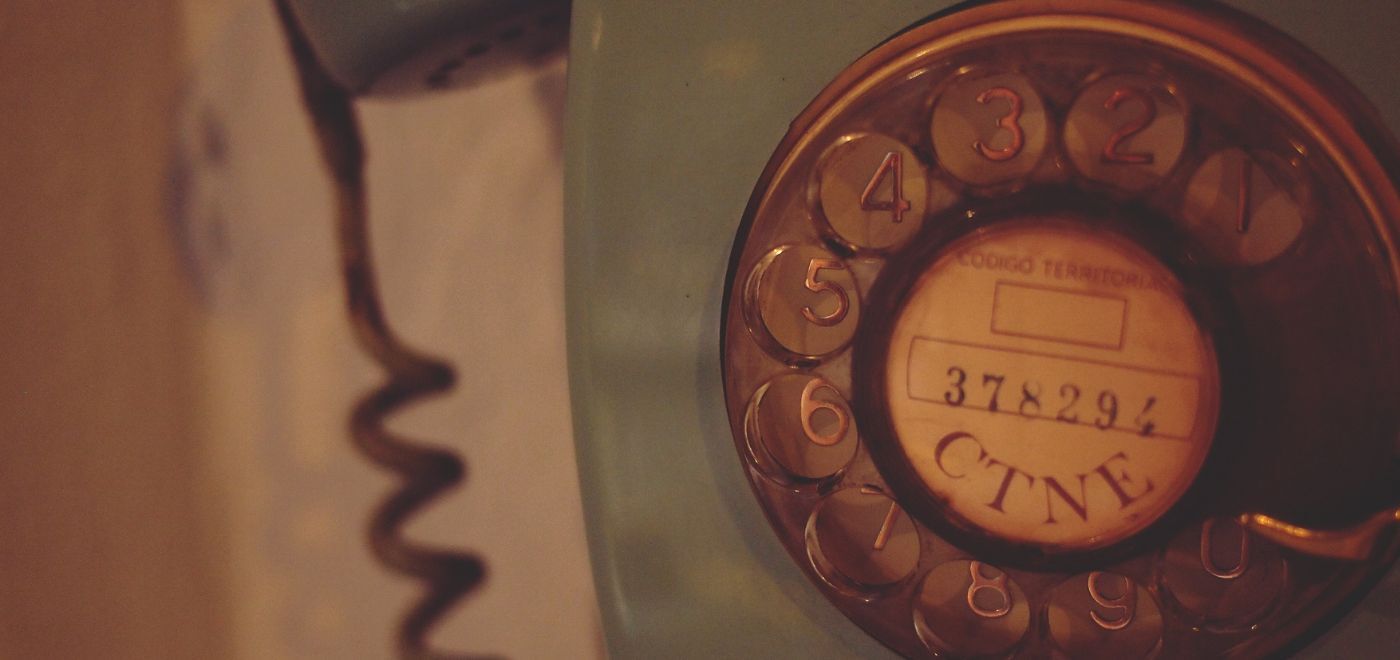![]() Today, we’re going to explain why you’re better off with an in-room tablet as opposed to a mobile app for your hotel’s guest communication and marketing platform.
Today, we’re going to explain why you’re better off with an in-room tablet as opposed to a mobile app for your hotel’s guest communication and marketing platform.
The hotel industry is undergoing a technological revival and the race to provide effective digital solutions for in-room guest communication has yielded a range of innovative approaches. Two of the major front-runners are app-based solutions for smartphones and tablets, and integrated tablet solutions that come ready to use as part of the hotel room.
The digital hotel guest
The hotel guest of today is more connected than ever before, and even those from demographics that were once considered technophobes are adopting mobile technology surprisingly quickly. According to Statista, the number of people in the US that own smartphones surpassed 250 million in 2018 with similar rates also being observed around the world. Although tablet ownership has not hit the same heights – with nearly 300 million Americans owning one at the beginning of 2021 – they’re still selling at a steady rate which looks set to continue for the foreseeable future. The widespread adoption of digital technology has meant hoteliers have no choice but to take note of this change and adapt their services to meet the evolving demands of their guests.
The differences between app-based and in-room integrated tablet solutions
Both these solutions allow hotel guests easy access to the offers and services of a hotel through a digital interface. In turn, they provide hoteliers with a centralized platform through which they can present the range of services on offer at their establishment. The main difference between the two is, of course, that an app needs to be downloaded onto a guest’s personal device while an in-room tablet solution is a standalone device that requires no registration or process of downloading. Tablets can also function as a central system for room and entertainment controls and as a digital guest directory, alarm clock, and stand – qualities that make it the better solution of the two.
User habits and the downside of app-based solutions – the numbers never lie
The major downside of app-based solutions is that the user needs to perform certain actions before they are even able to use the app. As the uptake will never be 100%, this naturally restricts the proportion of guests that will use this platform and therefore receive the high-quality experience they’d otherwise expect at your hotel.
Think of it like this:
If you have 100 guests at your hotel, but only 80 of them own smartphones or tablet devices, you’re already limiting the number of guests that are able to communicate through the platform.
Out of the remaining 80, it may be that only 40 will actually download the app due to factors such as the ineffectiveness of advertising, the low uptake rate of mobile apps in general, and potential technical issues or misunderstandings that can occur.
So, you’re now left with only 40 of the original 100 potential users able to log into the platform. Of these, it’s unlikely that a significant number – possibly as low as 5%, or 2 out of the original 100 – will fully explore the app and its potential, let alone be convinced enough to follow up on a call to action!
This breakdown illustrates how, by investing in an app-based solution that promises to deliver a great service for your guests, you may actually be limiting potential reach – a point that's highlighted in an article by Hotel Tech Report.
In contrast, an in-room integrated tablet-based solution will reach everyone who enters the hotel room, whether they have a smartphone or tablet device, or not. In addition, features that require guests to interact with the device such as room controls, integrated TV controls, and information about the hotel will invite guests to use the device during their stay. These features will encourage guests to use the platform to buy items or order paid-for services through the hotel shop, restaurant, or other channels that allow you the benefit of upselling.
Motivating guests to use your platform
In addition to the percentage problem, there’s also the challenge of motivating guests to actually use an app once it’s been downloaded, especially as it’s a source of push notifications and reminders that they can actively block if they wish. According to Buildfire.com, 62% of apps that are downloaded are not used on a monthly basis – a statistic that also applies to the hotel industry.
The advantage of an in-room tablet is its passiveness – it doesn’t invade the guest’s personal “digital space” by taking up room on their own mobile device.
By acting as a central control platform for guests, a tablet is inviting rather than invasive, meaning that potential users will feel welcome when using it and therefore more likely to want to engage, rather than feeling forced to do so.
Choosing the option that’s best for your hotel
When looking for an in-room guest communication platform, it’s important to understand the likelihood of it being used. The low uptake frequency, the necessity for guests to have a mobile device, and the potential barriers during the downloading phase are all hurdles that need to be overcome in order for a mobile app to reach its target audience. The culmination of these factors greatly limits its potential use and therefore the opportunity to provide a first-class service and make additional sales.
Specifically designed and integrated in-room tablet solutions bypass these issues, allowing customers the freedom to explore what your hotel has to offer without needing to download an app. It allows them to delve into the device at their leisure and means everyone that visits your hotel will receive the same great service, without requiring their own mobile device, every time they check-in!
If you’d like to find out how adding SuitePad devices to your hotel rooms can improve the experience for your guests while creating additional streams of revenue for your business, then check out our free e-book on Digitally reaching hotel guests – comparing technologies for guest communications, or request a free personalized demo with one of our experts.
- Published on May 21, 2019








.png)
